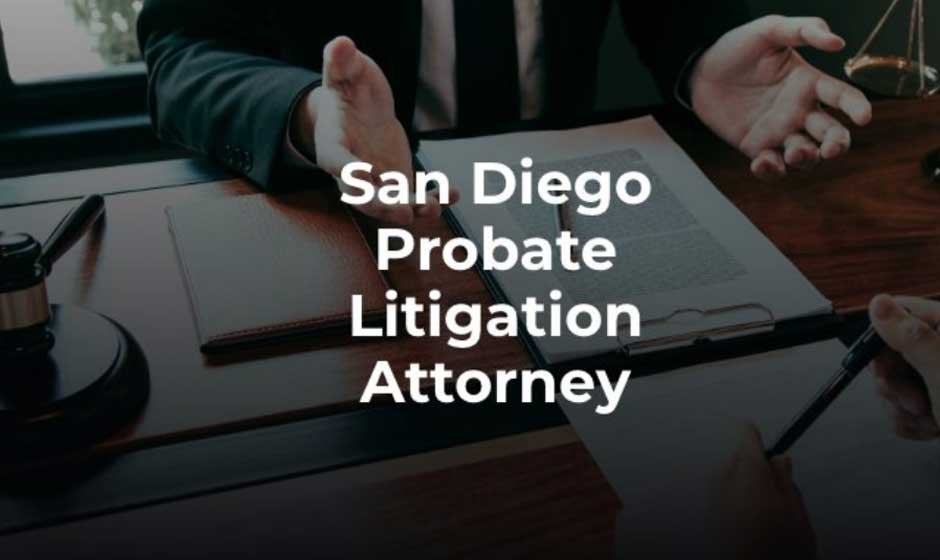Probate in San Diego doesn’t have to be overwhelming, but it definitely can be if you try to go it alone or rely on incomplete advice. With a growing population, an aging demographic, and property values that continue to rise, estates here often involve complex assets, legal hurdles, and tight timelines.
Known for its coastal beauty, diverse neighborhoods, and strong military presence, San Diego is a city where local identity matters. From Mission Hills to Oceanside, each community can bring its own unique legal considerations when it comes to handling estates and probate.
That’s why probate in San Diego can quickly become a heavy process for families who are already grieving. What makes it even more challenging is the local court system. San Diego’s probate court moves slowly, hearing dates are often scheduled months out, and if paperwork is incorrect or incomplete, the case could be delayed even further.
For grieving families, working with a San Diego probate attorney isn’t just helpful but necessary. When someone passes away without a fully structured estate plan or when their assets fall outside a trust, you need someone who understands the court’s processes inside and out. Not just any attorney, but one who’s experienced specifically with San Diego’s probate court.
What Is Probate?
Probate is what happens when someone dies and their assets, things like homes, cars, bank accounts, or personal belongings, need to be passed on to someone else. If that person didn’t have a properly set up trust, those assets go through probate court.
The court oversees this process, making sure debts and taxes are paid and that what’s left goes to the right people. If there’s a will, the court confirms it’s valid and appoints someone (usually called an executor) to take charge.
If there’s no will, the court appoints an administrator. Either way, the person in charge has to manage everything carefully, and that can be overwhelming, especially without legal help.
What Does a Probate Lawyer in San Diego Actually Do?
The right probate lawyer can carry the weight of the process for you. They know which forms need to be filed and when. They know how to avoid the common mistakes that delay hearings. Most importantly, they’re familiar with how the San Diego court expects things to be done.
A good probate attorney will:
- Guide you through every required step from petition to final distribution.
- Help you gather and inventory all assets, even the ones you might not think about at first, like life insurance or jointly held property.
- Handle creditor notices and help determine which debts need to be paid and which don’t.
- Make sure all taxes are filed and paid correctly, both to California and the IRS.
- Help you avoid penalties, delays, and any legal pitfalls that could leave you, the executor, personally responsible.
How Long Probate Takes in San Diego, and Why
Even in the best-case scenario, probate in San Diego isn’t fast. You’re looking at a timeline like this:
- Two months just to get a hearing date after the petition is filed.
- Four months for creditors to file claims.
- Another two months (minimum) for the court to schedule a final hearing to approve distribution.
That’s eight months if nothing goes wrong. But something almost always does, especially if there are complicated assets, questions about the will, disputes among heirs, or tax issues. In many cases, probate drags out to 10, 12, or even 18 months. And in really complex cases, it can take years.
This isn’t to scare you but to show you just how important it is to have a team that knows how to handle it from the start.
The Smarter Move: Planning Ahead with Trusts
The truth is, probate is avoidable. With proper estate planning, especially through the use of revocable living trusts, charitable trusts, or even generation-skipping trusts, most of the headaches can be skipped altogether. If you’re in Houston, seeking legal help with trusts in Houston can ensure that your estate plan is robust and tailored to your specific needs. An experienced attorney will help you choose the right trust structure for your goals and make sure it’s properly funded (a critical step many people forget). That way, when the time comes, your family isn’t stuck in court, waiting for months or years to access what’s rightfully theirs.
An experienced attorney will help you choose the right trust structure for your goals and make sure it’s properly funded (a critical step many people forget). That way, when the time comes, your family isn’t stuck in court, waiting for months or years to access what’s rightfully theirs.
And for trustees, working with a legal professional means you’ll know exactly what your responsibilities are and how to carry them out the right way, with clarity and compliance.










